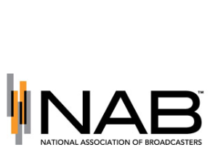
Ron Stone is the CEO of Adams Radio Group. On Friday we interviewed Stone as part of our CEO series on deregulation and whether there should be more deregulation for radio. He’s opposed. Our interview with Ron resulted in a lot of reader feedback. In case you missed it Friday here’s that interview again.
Adams Radio Group has stations in Tallahassee, Fort Wayne, Northwest Indiana, Salisbury-Ocean City, and Las Cruces. Ron Stone may seem like a man on an island after our deregulation interviews to this point. He does not believe more deregulation is the answer to radio’s woes and here is why…
Radio Ink: Why are you opposed to deregulation?
Ron Stone: I simply fail to see how further deregulation is going to make our business more competitive or more profitable. Most operators do not make a profit now with all the stations they own in a single market. The ones that are profitable derive the profit from one or two stations in a market. How will owning more change that? Most stations do far less now to serve the local market interest than they did before the first round of deregulation – how will owning more change that? Think about this. We own more stations in a single market now, have fewer employees operating them than we did when we had fewer stations. We can barely service what we currently own. How can we possibly service more…better?
Radio Ink: Have you been reading our series and if so what do you think of what other owners are saying?
Ron Stone: What I read into most of this is the same thing I saw in the first round in the 90s: own more, control the market. But that is not at all what happened. When we finally owned more, we did not get better at supply and demand pricing. We bowed to the agencies and allowed them to continue setting our prices…and even went further by using smaller-rated stations as tools to get on buys. Now we see individual stations literally given away in buys. Some of the CPP today are 50% of what they were 10–15 years ago. It is almost criminal what has happened to our business.
Radio Ink: Why do you believe so many broadcasters are in favor?
Ron Stone: In every industry there is always some that believe you can buy your way out of trouble. It never works, not in any industry, but it does not change some from thinking that way. In other words, we don’t learn from our own history of the mistakes already made.
Radio Ink: What do you believe the first round of deregulation did to radio?
Ron Stone: 1) Eliminated many good broadcasters from our industry; 2) Eliminated thousands of jobs from the industry; 3) reduced our ability to sell on results giving buyers more control and allowing them to set our rates for us; 4) put amazing pressure on everyone to survive the ridiculous leverage and the results thereof; and, 5) 20 years later put the two largest companies into bankruptcy.
Radio Ink: What would another round do?
Ron Stone: Some want all caps to be lifted. Let me put it this way. In 1996, radio had $12 billion of revenue. Today, radio has $16 billion. Sixteen billion dollars today, in 1996 money is $10 billion. So as far as I can tell, deregulation has taken us backwards by $2 billion over the past 20 years. If we had just kept even with inflation — not actually benefited from deregulation in any real way, just kept even — radio would have a $19 billion year this year. Owning more stations has not helped. This is clearly a case of less competition equals less money in fewer pockets. I can also argue that 20 years later, the largest benefactors of deregulation are now in bankruptcy.
Radio Ink: Do you buy the argument that more dereg will help radio compete with FB, Google, and other digital companies?
Ron Stone: No. How? Owning more stations does make us a digital operation similar to these companies. We will never out-Google Google, or out-Facebook Facebook. That is not our business. Thinking that way is no different than thinking we can be a television station or newspaper or steel mill for that matter. It’s silly. People listen to our stations for three reasons: 1) to hear live and local information about their communities; 2) because they have a relationship with the jocks; and, 3) to hear music. If we are live and local and we limit commercials, we can keep our listeners. If we don’t offer the local content listeners want, and we continue to play 20-25 commercials an hour like many stations do these days, then yes, we will lose the listeners to digital operators. We are our own worst enemy. Google’s revenue is $110 billion, Apple’s revenue is $220 billion, and Facebooks revenue is $40 billion annually. Radio’s combined $16 billion revenue is not their target. We are using them as an excuse for our bad decisions and poor operations.
Radio Ink: Do you buy the argument that fewer owners in a given market will lead to stronger local programming?
Ron Stone: Well, that certainly has not been the case since 1996. I would make just the opposite argument. I believe if more true radio broadcasters got back into the business, we would see amazing local programming.
Radio Ink: Right now, in a lot of markets, owners that have multiple stations throw in the weak ones at no charge, killing the average unit rate and devaluing the product. How would being able to own more stations make that better and not worse?
Ron Stone: Exactly. It will not make it better, and it will indeed make it worse. We turn down business every single day that major companies accept because it is priced lower than we will accept. We say no, they say yes. Just recently a major home improvement store (not Home Depot) wanted to buy one of our markets for an $8 CPP. Male demo. We dominate this demo. We priced at $25 and said that’s the bottom. Our competitor, a national company, does very well in the female demo, still priced at the $8 CPP, and accepted the buy. Not the right stations for the client; not the right decision for the market for helping the CPP. But that’s how it goes. We control what we can and try not to worry about what we cannot.
Radio Ink: Look into your crystal ball. What do you think is going to happen?
Ron Stone: I wish I could tell you. Follow the money, I guess. For the life of me I don’t understand why we continue to do things that are obviously ruining our industry. The big boys are okay with dropping in thousands of translators and get that done but they push back on the C-4 allocation. There is definitely a difference in opinion based on different circumstances. I love this business. I hate to see it destroyed by these bad decisions.
Ron Stone can be reached at [email protected]
Read part 1 of our series HERE with Galaxy CEO Ed Levine.
Read part 2 of our series HERE with JVC CEO John Caracciolo.
Read part 3 of our series with Neuhoff CEO Beth Neuhoff HERE.
Read part 4 of our series with Cromwell CEO Bud Walter HERE.










Earlier this year during the Thomas Fire in Southern California, the commercial radio “news” stations were caught flat-footed, short of staff and had their asses handed to them by KPCC, an NPR news station. KPCC had reporters everywhere, they had it covered 24/7. Their local talk shows covered the fire, the landslides and the closure of 101. They did community forums in several towns devastated by the fires. The “big” companies local talk shows gave the fire short shrift and went back to their talking points and political BS. KPCC did follow up reporting for several weeks after the destruction, letting us know what happened to the people who lost their homes, how they were doing. Stories about local businesses helping out the devastated home owners. The “big” stations did zip.
KPCC did a great job for Southern California. There was an all day food and music event in Ventura after the fire, 1000’s attended. Two radio stations covered “Ventura Strong” both were NPR affiliates. LA TV stations were there, not a commercial radio station in sight. The Ventura radio stations missed the fire, the ensuing disasters and the recovery. Of course months later they showed up with a lame sales promotion tied to the fire, the “sales” event went nowhere. By all means let’s give these people the chance to own even more radio stations, that’ll fix it!
Ron Stone is spot on!
Give the guy (Ron) some credit for speaking truth to bull****. There are more than the needed number of apologists, justifiers and distractors around to keep too many parts of the industry on the verge of imminent collapse.
Even if his outfit is still guilty of the many transgressions of which the rest of the industry is studiously working to ignore, at least his awareness has been piqued.
From that, some improvement is, if not likely, then, possible.
Live and local, huh Ron? Then why are there four syndicated morning shows on your stations in OCMD? And three syndicated nights shows. And voice tracking for the majority of the other shifts.
Give this man a gold star! I want to laminate this one and post it on the wall. FINALLY someone who gets it! Yes, radio is a business, but like ANY business it needs to have ‘rules’ to work within for everyone to be able to succeed!
Amen to “we don’t learn from our own history of the mistakes already made”. Deregulation was the beginning of the end for quality radio. There has always been a lot of drek on the air, but deregulation has made this a ‘race to the bottom’.
Can someone please mention EXPLICITLY though that it is the quality of the product — both technical quality and the content quality — that is the driver behind trying to save radio? Forget the business model for a second. If you do quality radio, listeners — and profits — will follow. Maybe not as much in the short run as gutting a station’s staff and running canned programming will, but if YOU are the ‘news voice’ or ‘station for local engagement’ or ‘place for today’s hot hits’ or something more than a juke box for oldies that you can get off Pandora you WILL succeed. Today’s bean counters don’t seem to ‘get’ that!
Give Ron Stone credit — he apparently does!
Just an FYI, Ron Stone is, by definition, a bean counter. His college degree is in accounting. That’s how he got into radio. And Ron Stone worked at Clear Channel during a period when they were laying off a lot of staff. So he is equally responsible for the things he talks about. So just because you agree with what he says doesn’t change who he is. And I’m not attacking him. People change. Just pointing out his background for all the commenters who don’t know.
Thank you Ron Stone, you nailed it.
iHeart should have been broken up during its Chapter 11, radio would have been so much better off had that happened. Had the courts learned how they operate to the detriment of the industry, I suspect that that could have happened.
what a great interview! finally a CEO who has his foot on the ground that really reflect.the reality of radio.
Thanks radio ink for bringing the other side of the coin (who makes the vast majority of the broadcasting industry) and hopefully all this small radio owners may speak up against the neoliberal elite policies of Pai who is not a voted or elected memeber of our gov. He is a beurocrat who was placed in the chair by Mr Trumps administration and onces he gets out, Mr. Pai will go back to his friends: Verizon, At and T, Comcast; and others. This is the very same guy whos mission is to kill net neutraality because they want to control the media analog or digital. they want it all.
Fabulous Ron….Thanks for speaking the truth. Never anything wrong with the truth.
Ron Stone, thank you for speaking truth to power. If more people like you in this industry have the guts to take the stand you have, the FCC may actually listen to reason and these bad actors will hopefully be silenced.
Ron is right. Two wrongs don’t make a right. In small and medium markets with multiple owners the vast majority of cluster owners will tell you they have three profitable stations and three not so much leading to discounts, bonuses etc. on the bottom three, basically devaluing the product. What happened to the saying “you can’t save your way to profitability”? Consolidation is driven by economies of scale, not revenue growth.
Simple supply and demand….. The more stations you have in a market …the more inventory you have..
the cheaper you sell it. In many cases….give it away so your big gun can get the buy.
Is this any way to run a radio company?
“People listen to our stations for three reasons: 1) to hear live and local information about their communities; 2) because they have a relationship with the jocks; and, 3) to hear music.”
Exactly! The bottom line formula has never changed. You can improve and adjust it here and there to fit your local market but these are the basics that make radio great. Staff your stations with talented, local air personalities and let them thrive. Let them be a part of the community. Play good music that is picked locally taking into consideration community feedback. It’s our advantage over streaming services and satellite.
And also, do local contesting, not national “text to win” contests. Listeners have figured out that their chance of winning is slim. There’s a station in my market making fun of the stations doing text to win contests. Telling listeners that if they have to text to win that they’re in a contest with millions. But they’ll take caller #9 and give you a free concert ticket or meal at a local diner, and oh yeah, even answer the phone and talk to you.
Way to go Ron! You sound like someone who is actually involved with your stations and listening to your people about what is and isn’t working. This is the best interview since this series started. Ron are you hiring?
Had Facebook, Twitter, Texting and the like been invented before radio and someone discovered radio and populated the nation with the number of stations we have now and the total audience radio delivers and super value to advertisers, the public would think it’s the greatest invention since sliced bread. Radio will survive and thrive as long as there are Ron Stone’s in the business.
Ron Stone is spot on with his comments. Instead of all the big national bankrupt companies trying to make believe they are giants on the internet and pushing our broadcast signals to be in the home with Alexia’s help. How about the broadcast industry focus on getting RADIOs that pick up the broadcast signal in the home and work. I went looking to buy a radio at Walmart and also looked at what passes as an electronic store these days and NO ONE had a decent radio available. On line the selection is also bad… Our focus should be making good reception and quality radios available for the home or office … just like Google, Apple, Microsoft, etc. are pushing their gadgets that pick up a streaming radio signal, the radio industry needs to push RADIOS! Just how stupid do we need to get before we see the light???
I have read every single interview for the last week and this is the only guy that speaks truth!
The evidence is very clear….
The 2 largest radio groups in the country are bankrupt. WTF! Chapter 11!
I am in a top 50 market. Both of them are in my market. They constantly give away the farm on lower rated stations to get on buys.
The most profitable owners in the market have 1 to 3 stations MAX!
I can’t believe what I’m hearing from these other owners. Grasping at straws.
Bravo!
“All the king’s horses and all the king’s men couldn’t put Humpty together again.”
When you have a group that owns half the stations in the market, they may have two or three that are the “Cash Cows” but the rest is the competition, which they own and control. Pay less attention to the digital market and more to what made radio great to begin with and what it lacks,”personality” and local participation.
Lifting caps again? It’s insanity… doing the same thing over and over again and expecting different results.
Based on his photograph, Ron Stone appears to have his head mounted squarely on his shoulders.
And, oh, yeah, his reasoning, based on his experience, is solid.
I wonder, meanwhile, if radio’s apologists, trumpeters-of-bilge and folly foisters have any idea as to how ridiculous they come off.
Ron Stone is spot on with his points. Advocating more deregulation for radio is about the dumbest, stupidest idea I’ve heard floated in years. Almost as stupid as running 8 or 10 or more commercials in a row, and driving the audience away and shortchanging the advertisers buriedin the middle of those intolerable breaks. That is as bad as “digital click fraud” that some people in radio whine about. Deregulation as Stone points out, has thrown the whole radio industry backwards, including billing (compared to 1996 billing and 1996 dollars.) And radio needs to stop obsessing about “digital”… Google doesn’t pretend to be in the radio business, and radio operators should concentrate on their core product- RADIO! …Hire compelling personalities, pay them, and cut down on the commercials and spend money actually PROMOTING your station(s)!! … But all that takes money, and many radio station operators don’t want to invest in their own product!! They just want to continue to squeeze out all the billing they can, with no concern for their product quality. Kind of like slum landlords. Yes, I am talking especially about iHeart Radio and Cumulus.